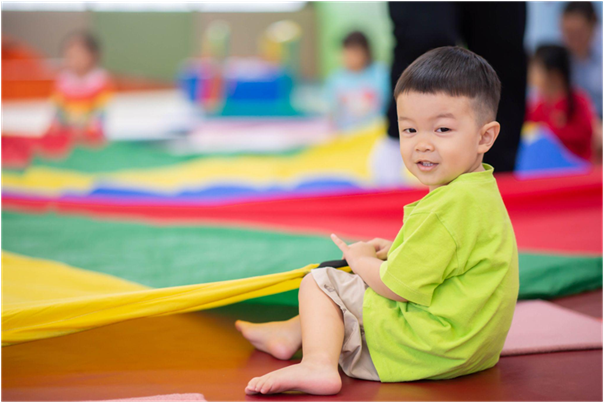Preschools in Singapore are structuring programmes around play-based learning, with playgroups serving as a key entry point. Children at this stage are engaging in activities that blend exploration with guided instruction. Teachers are planning lessons to develop listening, speaking, and social interaction, while ensuring exposure to Mandarin in natural settings.
Playgroups encourage children to work with peers, explore materials, and adapt to structured routines. Storytelling, music, and role-play remain central, while teachers are embedding language into these activities. By experiencing real-life contexts in Mandarin, children are building vocabulary while developing confidence in communication.
Parents considering playgroups in Singapore often find that these settings provide more than childcare. They serve as transitional spaces where children are adjusting to structured schedules while developing cognitive skills. For Chinese preschool education, this stage prepares children to acquire bilingual skills with greater ease in later years.
Integration of Play-Based Methods in Chinese Preschool
Chinese preschool education in Singapore emphasises cultural immersion alongside language acquisition. Play-based learning supports these goals by ensuring that children are practising Mandarin through engaging activities. Teachers are designing environments where children interact with peers while speaking the language naturally.
Children are participating in group games that involve instructions in Mandarin. They are also experiencing storytelling sessions where teachers encourage role-playing, reinforcing vocabulary. Through arts and crafts, children are learning colours, numbers, and descriptive words in Mandarin. These methods allow language development to progress in practical contexts, rather than isolated drills.
Parents enrolling children in a Chinese preschool often want assurance that learning is progressing in measurable ways. Play-based methods balance structured learning with creativity, supporting children as they grasp grammar and pronunciation. Exposure through play ensures that children retain what they learn, while developing cultural understanding through songs, traditions, and celebrations.
Cognitive and Social Benefits of Playgroup Activities
Children in a playgroup in Singapore are gaining benefits beyond language. Play-based learning strengthens memory, problem-solving, and critical thinking. Simple games requiring matching, sorting, or sequencing prepare children for higher-level academic tasks.
Social benefits are also evident. Children are practising sharing, turn-taking, and teamwork. In Chinese preschool settings, group play conducted in Mandarin helps children adapt to using the language in daily interaction. Teachers are guiding them to communicate effectively, developing both linguistic and emotional skills.
Structured play also builds resilience. When children face challenges during games, they are learning patience and problem-solving. These soft skills support adaptability, preparing them for future academic demands. By embedding Mandarin within these contexts, Chinese preschools ensure that learning remains consistent and purposeful.
Preparing for Formal Learning Through Play-Based Approaches
Chinese preschool programmes using play-based strategies are preparing children for the transition into formal schooling. Children in playgroups are already developing literacy and numeracy foundations. Teachers are integrating counting games, word recognition, and phonetic awareness into daily routines.
Activities involving puzzles, building blocks, and group challenges foster logical thinking. At the same time, children are learning discipline by following structured routines. These practices strengthen attention spans, helping children adapt to classroom expectations in primary school.
For parents, selecting a playgroup in Singapore that incorporates Mandarin exposure through play ensures long-term benefits. Children enter primary school with a stronger command of bilingual skills and greater readiness to learn. A Chinese preschool combining play with structured guidance provides a balance that supports overall development.
Conclusion
Play-based learning in Chinese preschools in Singapore ensures that children experience language, culture, and skills development through engaging methods. Playgroup activities offer foundations in communication, cognitive ability, and social skills, while preparing children for formal education. Parents seeking bilingual exposure and cultural immersion can find assurance in programmes integrating play with structured outcomes.
Explore how play-based learning can support your child’s growth. Schedule a tour at Orange Tree Preschool to discover a Chinese preschool in Singapore dedicated to nurturing language and development through engaging playgroup activities.

